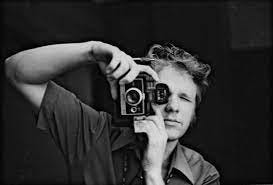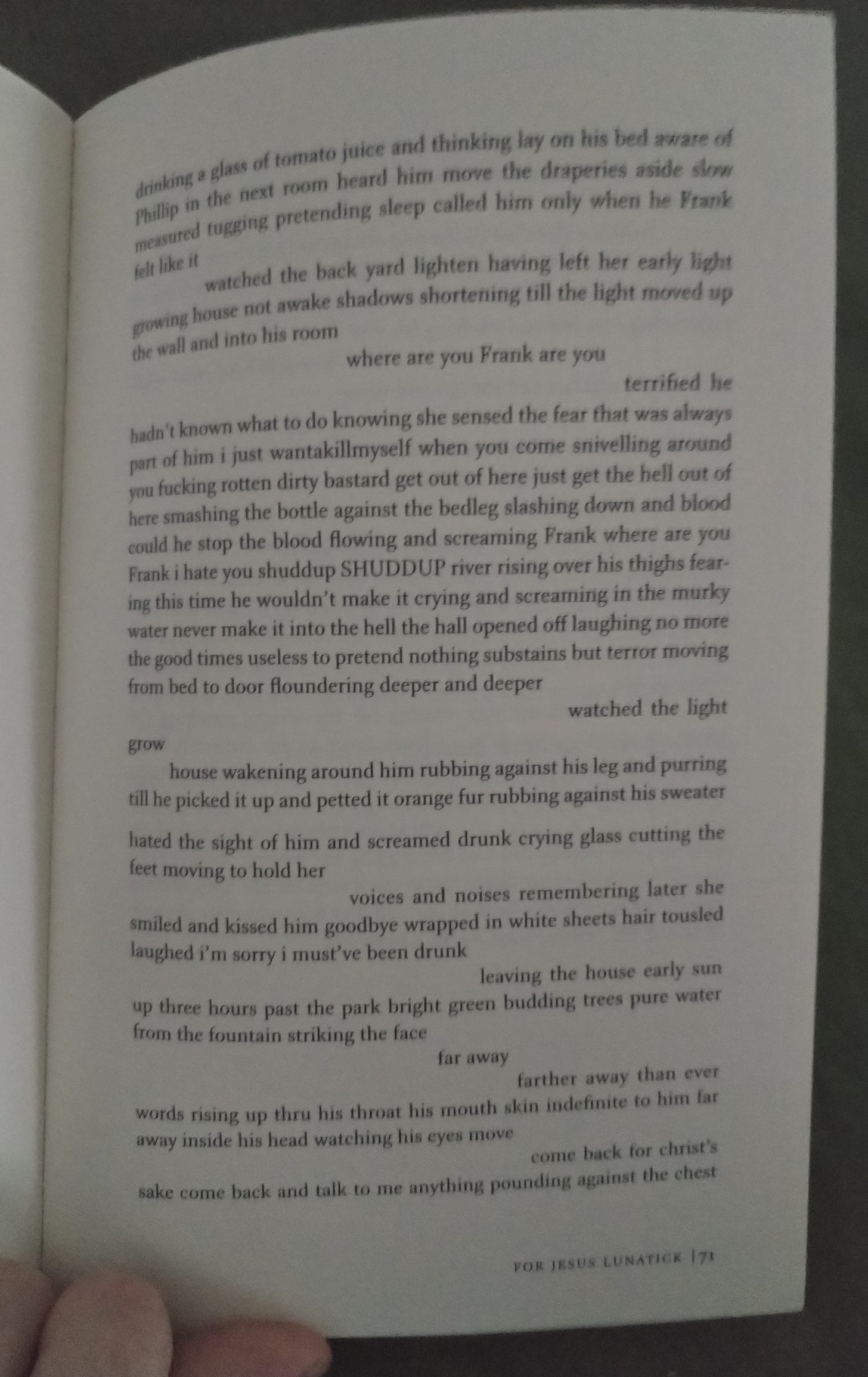How to Eat and Drink Like a Local on Prose Mountain
Not a Review but a Review of Nights on Prose Mountain: The Fiction of bpNichol edited by Derek Beaulieu (Coach House Press, 2018)
On occasion, books I’ve already read end up on my bedside for me to flick through before sleep. Visual poetry lends itself well to this. A few weeks ago, Sasha Archer’s cellsea from Timglaset - who’s publishing my forthcoming book - led the pile. Of late, it’s been Nights on Prose Mountain: The Fiction of bpNichol edited by Derek Beaulieu and published by Coach House Press. (Goodness! look at me actually writing a post about literature like a normal poet.) The book is easy enough for UK readers to purchase online without shipping from Canada.
The first time I read it, I was struck by how Nichol is known for everything but his fiction, overshadowed by performance and ephemera. Or that’s my impression having gone through as much historic material as I can. Here is a question for the scholars: What was Nichol known for alive verses now? I wonder if, because of his brilliant archive and the sound poetry held at UbuWeb among other sites, the playful pieces are emphasised over a lifelong work like The Martyrology. Does ephemera outnumber the book-books?
The point I’m writing around is this: some of Nichol’s fiction is deeply upsetting.
This from the guy who wrote for Fraggle Rock and Care Bears.
I’m grateful for Beaulieu’s statement in the afterword, linking into Nichol’s experiences as a lay therapist: This is the stuff of crisis. I want to sit with this phrase, because it hints at why this collection fascinates me and one of the many, many, reasons Nichol is among my biggest influences.
Language is treated as found, located somewhere in different states or situations. Prose Mountain implies a place. It seems obvious to me that this is a place Nichol could access inside himself, a place we can go to. That is, not prose as a sequence of words to convey information but a felt landscape writers can reside in. Not treating sentences like something we squeeze out our assholes.
I’m reminded of Kathy Acker’s article on accessing language. In interview (the 1995 class discussion here) she speaks further about masturbating and transcribing the language that rose from her body. I need to clarify: she wasn’t letting this inspire plots and characters. A language would independently come to/with her, which she recorded.
And so the stuff of crisis hits me as a language Nichol could go to alongside wordplay, his doodles and songs. I offer this as relief, as a sign post to a mountain you can visit too. It’s likely more fun than writing-as-chore.
After wondering how Nichol is viewed in 2024, I’ve risked misrepresenting Nights on Prose Mountain. Alongside the excerpt above, the collection fuses metafiction, experimental comic strips and concrete poetry which spill into multiple other forms. It’s inspiring, and enriches readers’ understanding of Nichol’s tragically short, but abundant, career.




